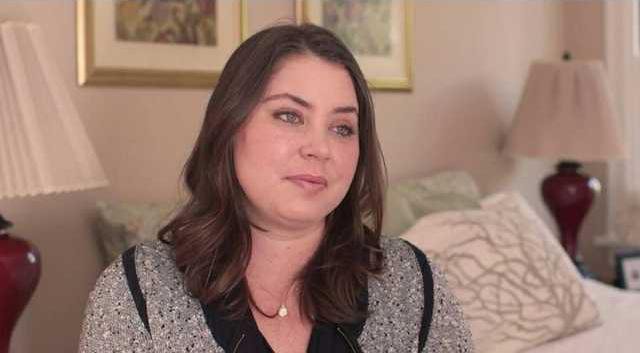A 29-year-old Oregon woman who said she would end her life Nov. 1 due to terminal and incurable brain cancer now says she may not do so that day.
Speaking with CBS News correspondent Jan Crawford, Brittany Maynard said, "Nov. 1 became kind of — a date for me to almost, like, make it to. That's a huge misconception, and I feel like people who are against this healthcare choice have tried to make it into a deadline. And I may be alive on Nov. 2, or I may not. And that's my choice."
Maynard asserted it was the disease that will draw her existence to a close, despite her stated intention to ingest a prescribed, lethal dose of medication.
"No, cancer is ending my life," she explained. "I am choosing to end it a little sooner and in a lot less pain and suffering."
Maynard said her pain and suffering surfaced one day after checking off a final item from her "bucket list" — seeing the Grand Canyon up close, according to CNN.com.
"Severe headaches and neck pain are never far away, and unfortunately the next morning I had my worst seizure thus far," the cable network report quoted from her website. "My speech was paralyzed for quite a while after I regained consciousness, and the feeling of fatigue continued for the rest of the day."
Maynard's decision generated global attention — and controversy. While Compassion & Choices, a Denver-based group promoting so-called "death with dignity," is supporting Maynard in her effort, others oppose her decision. One cancer victim, 36-year-old Kara Tippetts of Colorado Springs, Colorado, has urged Maynard not to succumb.
"In your choosing your own death, you are robbing those that love you with the such tenderness, the opportunity of meeting you in your last moments and extending you love in your last breaths," Tippetts blogged.
Amid the Maynard news, the National Association of Evangelicals affirmed its opposition to "assisted suicide" (also called "aid in dying" by advocates), while allowing for the "withholding or withdrawal of life-support systems" when death is imminent.
"The withholding or withdrawal of extraordinary life-support systems to allow natural death at this time is not only morally appropriate, but compelling," the evangelical group stated.
Dr. Ira Byock, a physician and end-of-life care specialist, expressed anguish over Maynard's situation.
"I really worry for this woman who is vulnerable and going through a wrenching time in life," he told the PBS Newshour. However, should Maynard choose hospice, Byock said, "she could get excellent whole person care and be assured of dying gently in her bed surrounded by her family."
Maynard responded sharply in a statement: "For example, (Byock) said that a gentle death would be available to me easily through hospice, unfortunately that would be after a great length of time, with lots of suffering (physical and emotional), and loss for my young body."
Religion News Service has an online survey on dealing with a terminal illness, asking, "If you were Brittany Maynard, what would you do?"
At last check, 42 percent of respondents said they would endure "until my life ended naturally," while 29 percent said they would end their life "on my own terms," and 30 percent said they were "not sure" what they would do.
Email: mkellner@deseretnews.com
Twitter: @Mark_Kellner
Days before deadline, brain cancer victim may not choose to die





